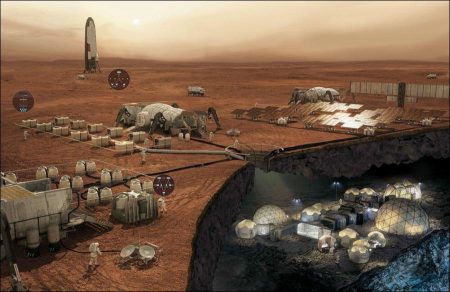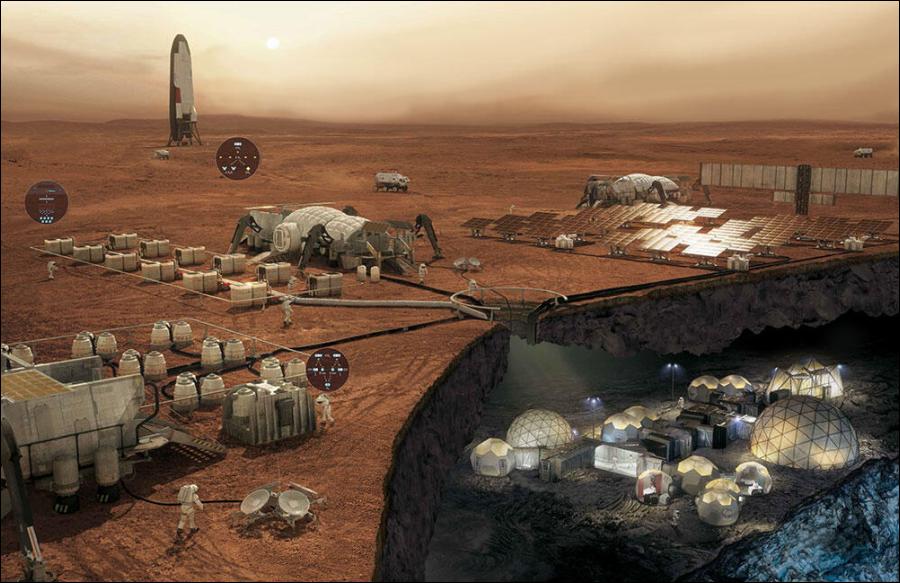The journey to Mars has always been the greatest dream of mankind. The idea of going to this red planet one day and settling and proliferate there, is in the corner of almost every human mind. The award-winning astrophysicist, Dr. We had an interview with Jedidah Isler about the manned Mars voyage planned for 2033.
Why are we settling directly in Mars, not in the firs step Moon?
- Mars is not the first target anyway. In the coming period, new technologies will be developed gradually. We need to think of Mars as the final limit of what we want to do. Before that, there will be intermediate steps, such as settlements on the Moon, intermediate trials.
What’s the target after Mars?
- Let’s live first on the moon, then on Mars, then we’il look at the rest. Probably out of the solar system this time.
How realistic is 2033?
- It’s really realistic. Perhaps you know that seven different states are now preparing to send robots to Mars in three to four years. We already have the technology to send people to Mars. What needs to be done is to adapt it to the size of the job. New equipment and manpower can be dispatched every 26 months after Mars and Earth are aligned and closest. After the first life with six people on Mars, the number will rise to hundreds and thousands over time.
How long will it take to migrate to Mars in masses?
- About 40 years.
There’s more… Can we see it?
- My grandmother is 102 years old. He saw the first commercial flights in which the coming from your country to mine was only accessible by sea. That journey would take months and people would die. Now you’re here in 7-8 hours by plane.
Why do we need for other planets?
- Because as human beings, we need places where we can forget the old rules and make new ones. Imagine the discovery of America. Those who came here were looking to leave the old behind and make a fresh start. Going to Mars can be such a beginning.
What can we compare the colonization of Mars with what else in human history? Could it be the discovery of America or the discovery of the wheel, as you say?
- It’s more like spreading from Africa to the world. We are tropical animals that set off from Africa, but thanks to their intelligence, they survived even in the coldest places in the world. Without our technology, our hairless bodies can’t keep us alive on a cold New York night. We have developed into a local genre around Kenya, a global species with hundreds of different languages and hundreds of different communities spread throughout the world. What we are preparing now is to change from a spheroidal spherical type to a multi-planetary space type.
Whose property will be Mars? Will there be ownership?
- There are institutions and states operating there. But at the last stage, Mars will belong to those who have settled there, who have built the houses, that is, the Martians. Whether they are a single nation or 20 separate peoples, Mars belongs to the Martians…
How will other peoples and states be part of it?
- Whoever wants to be a part. Turkey, for example. The observation vehicle we sent to Mars in 1996 amounted to $ 150 million. It’s more or less a mall money.
We have satellites in space, but we don’t make them, it’s a technology we buy.
- Participate in joint projects even if not alone. He should. You cannot turn to Turkish youth and say, orsan If you want to be a space explorer, emigrate to another country ”. “Both Turkey should ensure they can live opportunities both in space explorers.” It is necessary to know the way, Mars Society also has branches in Turkey. I want you to contact them.
How will religious beliefs, ethnicity, sexual preferences be represented among the first settlers? Is there a Chinese or gay quota?
- There will be people from all walks of life. But the important thing is who can’t: You can’t send people who are intolerant of other identities to Mars. We’re going to need talent from every source there.
When will the first Martian child be born in Mars?
- I’m not sure if we have a good idea about having kids on Mars. Because the bones of generations born and raised on Mars will examine and the Earth will not be able to live in gravity. So they’il never come back home. We did some frog experiments on my space flight. His embryos were normal in zero gravity. But we humans, for example, are losing weight in space. This is a question about what we are ethically looking for and we need to discuss.
Do you expect a different evolution on Mars?
- I’m not saying, “We’il have dinosaur skin in 20 years.” But many things will change, especially the bacteria in our skin. Some will develop and become more aggressive. Maybe they’il cause new diseases. But we can do things that we couldn’t do before. Basketball rules will probably change because we can jump much higher!
A trip that will not be returned … Can you imagine yourself there?
- Of course I can imagine myself there. I don’t know if it’s the right idea or not, but it’s been dreaming of me since I was a kid. Whether Daedalus or another shuttle, I’m looking for ways to find myself a seat. That’s a little disappointing for me. The first thing that comes to mind when you think of Mars is of course to be away from your loved ones and the Earth… But it will also be a very important discovery for humanity!
Why should we settle in other planets? When our world will be stop?
- We’ve been here for two million years, but we can’t live on earth forever. Last year we saw that a virus like ebola could deplete our Earth lineage. Or an asteroid that hasn’t hit so far could destroy our Earth. At best, our Sun will begin to die for a million years. And it will expand and swallow everything in the solar system alive and lifeless. If we don’t want to disappear with him… So we don’t go. But there’s another reason…
What?
- Our technology works to make our lives more comfortable, but it remains the same unless we have a motivation and do not push anything.
We use all our eford for better refrigerators, smarter televisions…
- Exactly. The basis of many things from the mobile phones we use today to the internet was laid during the Second World War research. But it’s been static for the last 50 years. We need such motivation to shake. By going to Mars we will not only create a new home for ourselves, but also inspire new generations to do great things. When mankind first walked on the moon, people said, Wow! If we did this, we could do anything.. We have to make new big dreams. The first European immigrants came to America in 1621 with the first ship. They were about 150 people. 30 years later, the number had increased to more than 30 thousand. The same thing will happen to Mars.
Views: 126











